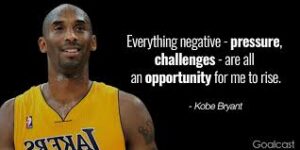In faith, there is enough light for those who want to believe and enough shadows to blind those who don’t” – Blaise Pascal
Every athlete thinks they know the game. Every coach thinks they know the player. But the truth is, the rope between us—patience, humility, trust—always stretches farther than we realize.
I tested positive for Covid on Monday, so I’ve been a hot mess the last few days. On top of that, a couple of people I love and respect have been going through some hard times in their relationship, and I haven’t been able to be there for them the way I would have hoped. Still, as I’ve come out of the fog of the last 24 hours, I’ve felt the need to write about what they are going through: the challenge of coaching young athletes—especially first-time college athletes—who are being coached “differently” for the first time, and the rope of patience and understanding that both athletes and coaches have to manage.
The tie usually goes to the upperclassman.
As we go through high school, there’s a common acceptance that freshmen are typically not going to make varsity. That expectation often continues through sophomore year unless you’ve demonstrated ability well beyond the juniors and seniors ahead of you. Think of it like baseball: the tie goes to the runner. In high school sports, the tie usually goes to the upperclassman.
College is different in a lot of ways, but in this sense it’s exactly the same. Sophomores have had a year of failure on the court, a year of strength development in the weight room, and the confidence that comes from simply surviving that first year. Sometimes that confidence slips into cockiness and leads to more failure in the fall. But more often, by the spring semester of sophomore year, that cockiness turns into humility. Juniors and seniors have already accepted that humility leads to joy. They’ve learned that steady, daily hard work—not bravado—leads to consistent playing time and a secure role on the team.
Freshmen believe they’ve cracked the formula.
They’ve proven they belong—at least in their own eyes. “Heck, the coach recruited me because they saw me as a difference-maker. They saw what I did in high school. This is going to be easy.”
Well, it’s not easy. It’s confusing and frustrating and overwhelming. At 18, we forget how much our parents took care of us through those four years of high school. Someone usually woke us up when the alarm didn’t go off. Someone cooked healthy meals and kept the fridge stocked. The laundry was usually done by a parent—or if mom and dad made you do it (and mom and dad, you should be making them do it!), the washer and dryer were right down the hall. In college, the laundry room might be four floors down—or across the street. You may have to wait your turn, and you can’t just leave your clothes unattended unless you want them stolen or dumped out. Silly examples, maybe. But you catch my drift.
College sports aren’t hard because other athletes are bigger, faster, stronger, and older—though they are. They’re hard because freshmen haven’t yet figured out who they are without their parents. Their identity has been tied to mom and dad for 18 years. In college, when you fall, no one is there to pick you up. You have to pick yourself up. And if you expect someone else to do it? You’ll get laughed at—not to humiliate you, but to toughen you, to force your eyes open to the fact that your identity has to change.
At 18, the instinct is to fight back.
“I’ll attack. I’ll be aggressive. I’ll show them I’m tough.” But beneath the bark, there’s no bite. Anger grows when playing time doesn’t come. We start evaluating the coach, then criticizing the coach. “They don’t know what they’re doing. My high school coach would tell them how to use me. Heck, my high school coach could show them how to run practice the right way.”
We puff out our chest, stand our ground, and try to prove we can be strong without mom and dad. What our teammates and coaches see instead is entitlement. They wonder why you don’t work hard every day, why you roll your eyes, why this fantastic kid we recruited now carries such a poor attitude. “And you’re going to flush that opportunity down the drain within a few months of getting here?”
That’s when the coach gets frustrated. Angry with themselves for missing it in recruiting. Upset they didn’t ask more questions about your character. “If this kid doesn’t want to wait their turn and earn their spot, then the hell with them. Transfer. I’ll replace them tomorrow.” And then both sides get to the end of the rope. The player thinks, “This dumb coach doesn’t know what they’re doing. I’ll jump into the portal and make them regret it.” The coach thinks, “This kid is a cancer, and I can’t let them infect the team.”
There’s always more rope.
The best juniors, seniors, and seasoned coaches eventually realize this. There’s always a middle ground if both parties are humble enough to drop the bravado, listen, and speak honestly. When we share our feelings calmly and take accountability for our part, amazing things can happen. We discover the rope is longer than we thought—sometimes endless—if we only slow down long enough to see it.
I’m disappointed in myself for the times I didn’t see the rope clearly, for the times I failed to be the better version of myself that certain kids or parents needed. But I’ve also realized the rope isn’t just eternal for a player or a season—it’s eternal for a career, and even for life. Yes, I still believe in tough love. And yes, I know I won’t “fix” every kid in the moment. But I also know this: the rope is always there. When those I love are ready to grab it again, I’ll be there—first in line—ready to meet them halfway.
What’s next?
If you’re an athlete, a parent, a coach, or a leader, this lesson applies on and off the court. The rope of patience, humility, and accountability stretches farther than we think. And that’s exactly what I teach through my writing, my one-on-one work with families, and the consulting and speaking I do with schools, colleges, and organizations. For more resources, recruiting tools, and ways to bring me in to work with your program, visit CoachMattRogers.com.






